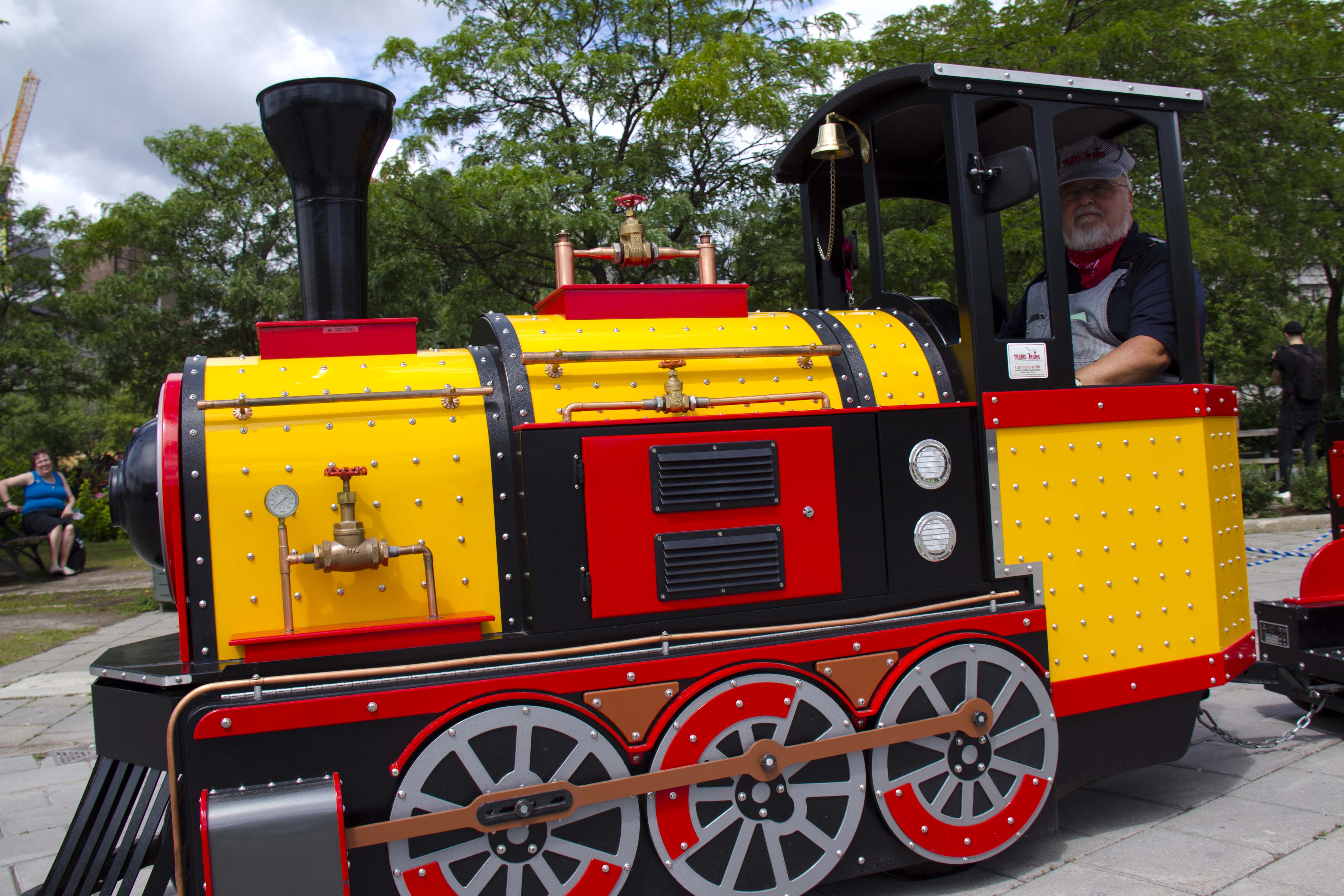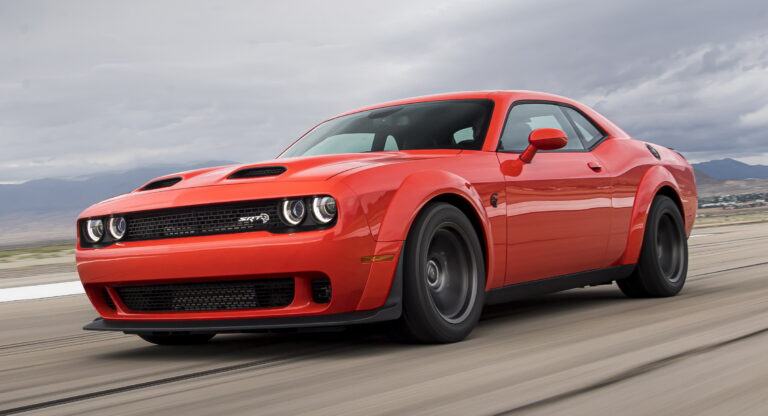Train Trucks For Sale: Your Comprehensive Guide to Acquiring Road-Rail Versatility
Train Trucks For Sale: Your Comprehensive Guide to Acquiring Road-Rail Versatility cars.truckstrend.com
Introduction: Bridging Road and Rail – The Power of Train Trucks
In the intricate world of railway infrastructure, where precision, efficiency, and safety are paramount, specialized equipment forms the backbone of operations. Among the most versatile and indispensable tools in this arsenal are what are colloquially known as "train trucks" – more formally recognized as hi-rail vehicles or road-rail vehicles. These ingenious machines are engineered with a unique dual capability: they can operate seamlessly on conventional roadways and, with a swift transition, glide effortlessly onto railway tracks.
Train Trucks For Sale: Your Comprehensive Guide to Acquiring Road-Rail Versatility
The market for "Train Trucks For Sale" is a dynamic one, catering to a diverse range of buyers from major railway corporations and government agencies to private contractors, utility companies, and even specialized service providers. Acquiring the right train truck is not merely a purchase; it’s an investment in enhanced productivity, improved safety protocols, and unparalleled accessibility for tasks ranging from routine track inspection and maintenance to emergency repairs and heavy-duty construction along rail lines.
This comprehensive guide aims to demystify the process of finding and purchasing train trucks. We will delve into their definition, explore the various types available, highlight the myriad benefits of ownership, outline crucial considerations for buyers, and provide practical advice to navigate the market successfully. Whether you’re looking to expand your fleet, replace aging equipment, or venture into rail-related services for the first time, understanding the nuances of train trucks for sale is your first step towards making an informed and valuable investment.
What are Train Trucks (Hi-Rail Vehicles)?
At their core, train trucks, or hi-rail vehicles, are conventional road-going trucks that have been extensively modified with specialized rail gear. This rail gear typically consists of retractable flanged steel wheels mounted on the front and rear of the vehicle, which can be lowered to engage with the railway tracks. When the rail wheels are deployed, the truck’s road tires lift slightly off the track, allowing the vehicle to run on rails, guided by the flanged wheels. When the task on the rail is complete, the rail wheels are retracted, and the truck can drive off the tracks and continue on the road.
This dual functionality is what makes them indispensable. They eliminate the need for separate road and rail vehicles for many tasks, significantly reducing transit times to work sites, especially in remote areas where track access points might be limited. They are essentially mobile workshops, inspection units, or personnel carriers, designed to bring the necessary resources directly to the point of need on the rail network.
Types of Train Trucks Available for Sale
The "Train Trucks For Sale" market offers a wide array of vehicles, each designed for specific applications. Understanding these categories is crucial for identifying the right truck for your needs:
- Maintenance of Way (MOW) Trucks: These are the workhorses of the railway industry. They often feature various attachments and configurations, including:
- Crane Trucks: Equipped with hydraulic cranes for lifting and moving heavy rail components (ties, rails, signals).
- Dump Trucks: For transporting ballast, aggregates, or debris.
- Service/Utility Trucks: With specialized tool compartments, welders, air compressors, and generators for on-site repairs and maintenance.
- Personnel Carriers: Designed to transport crews to work sites comfortably and safely.

- Inspection Vehicles: Typically lighter duty, often crew cab trucks equipped with advanced monitoring systems, cameras, and GPS for track condition assessment, signal inspection, and general line surveys. They prioritize comfort and visibility for extended periods of inspection.
- Specialized Application Trucks: These cater to niche requirements, such as:
- Vegetation Management Trucks: With booms and sprayers for controlling growth along the right-of-way.
- Catenary Maintenance Trucks: Equipped with elevated platforms for overhead line work.
- Emergency Response Vehicles: Designed for rapid deployment in case of derailments or other incidents.

- New vs. Used Train Trucks: The market offers both. New trucks come with warranties and the latest technology but at a higher price point. Used trucks can be significantly more affordable, but require thorough inspection and a careful assessment of their maintenance history and remaining service life.

Benefits of Owning/Purchasing Train Trucks
Investing in a train truck offers a multitude of advantages that translate directly into operational efficiency and cost savings:
- Unmatched Versatility: The ability to transition between road and rail provides unparalleled flexibility, allowing rapid deployment to any point on the rail network from a public road.
- Increased Efficiency and Productivity: Reduces travel time to job sites, eliminates the need for transferring equipment, and allows crews to work directly on the tracks without disrupting main line traffic as much as dedicated rail equipment might.
- Enhanced Safety: Modern hi-rail systems are designed with robust safety features, including braking systems optimized for rail, and offer a more controlled environment for workers compared to manual methods. Reduced exposure to live rail traffic is also a key benefit.
- Cost-Effectiveness: While the initial investment can be substantial, the long-term savings from reduced labor hours, fuel consumption (by eliminating multiple vehicles), and improved project completion times often justify the expense.
- Accessibility: Train trucks can access remote or difficult-to-reach sections of track that might otherwise require complex logistics or significantly more time.
- Multi-Purpose Functionality: Many train trucks can perform various tasks with different attachments, making them a multi-functional asset for any rail operation.
Key Considerations When Buying Train Trucks
The decision to purchase a train truck should be carefully considered, taking into account several critical factors:
- Purpose and Application: Clearly define the primary tasks the truck will perform. This will dictate the type of truck, its required features (crane, dump bed, service body), and its load capacity.
- Condition and Maintenance History: For used trucks, a thorough inspection is paramount. Check the engine, transmission, brakes, tires, and especially the hi-rail gear for wear, damage, and proper functionality. Request detailed maintenance records.
- Compliance and Regulations: Ensure the truck meets all federal, state, and local railway regulations (e.g., FRA standards in the US). This includes braking performance, lighting, horn, and safety features. Non-compliance can lead to fines and operational shutdowns.
- Weight Capacity and Towing: Verify the gross vehicle weight rating (GVWR) and towing capacity are adequate for your intended loads and attachments. Overloading can be dangerous and lead to premature wear.
- Manufacturer and Model Reputation: Research the reliability and durability of different manufacturers and specific models. Consider the availability of parts and service support.
- Fuel Type and Efficiency: Diesel is common, but consider fuel economy, especially for long-distance travel or extensive idling.
- Aftermarket Support: Ensure parts, service, and specialized repair expertise for the hi-rail system are readily available.
- Budget: Establish a realistic budget that includes not just the purchase price but also potential refurbishment costs, transportation, training, insurance, and ongoing maintenance.
Where to Find Train Trucks For Sale
The market for "Train Trucks For Sale" is specialized but accessible:
- Specialized Equipment Dealers: Many dealers focus specifically on railway maintenance equipment, offering both new and used hi-rail vehicles. They often provide customization and support services.
- Online Marketplaces: Websites dedicated to heavy equipment sales (e.g., IronPlanet, Ritchie Bros., MachineryTrader) frequently list train trucks. Be cautious and verify sellers.
- Auctions: Railway companies, government agencies, and heavy equipment auctioneers periodically sell surplus or retired hi-rail vehicles. These can offer good deals but often come with "as-is, where-is" conditions.
- Direct from Railway Companies/Contractors: Sometimes, large railway companies or contractors will sell off parts of their fleet directly. Networking within the industry can uncover these opportunities.
- Manufacturer Websites: For new vehicles, going directly to manufacturers (e.g., Harsco Rail, Brandt, Diversified Metal Fabricators) is an option.
The Buying Process: A Step-by-Step Guide
- Define Your Needs and Budget: Before looking, clearly outline what tasks the truck will perform, what capacity it needs, and how much you’re willing to spend.
- Research and Identify Potential Sellers: Use the resources listed above to find suitable trucks.
- Initial Inquiry and Information Gathering: Contact sellers for detailed specifications, photos, and maintenance records.
- Thorough Inspection (Crucial for Used): If possible, conduct an in-person inspection. For significant investments, hire a qualified third-party inspector specializing in heavy equipment or hi-rail vehicles. Check the engine, transmission, chassis, hydraulics, electrical system, and especially the hi-rail gear for wear, alignment, and functionality.
- Due Diligence: Verify the vehicle’s title, check for any liens, and confirm all regulatory compliance documentation.
- Negotiation: Be prepared to negotiate on price, especially for used vehicles.
- Financing: Explore financing options if needed, such as equipment loans or leasing.
- Transportation and Delivery: Plan how the truck will be transported from the seller’s location to yours.
- Operator Training: Ensure your operators are fully trained and certified to safely operate the specific model of hi-rail truck you purchase, adhering to all safety regulations.
Maintenance Tips for Train Trucks
Proper maintenance is key to maximizing the lifespan and reliability of your train truck:
- Regular Inspections: Implement daily pre-trip and post-trip inspections, focusing on tires, fluid levels, lights, brakes, and the hi-rail gear.
- Hi-Rail Gear Specific Maintenance: Pay close attention to the rail wheels, axles, bearings, and hydraulic cylinders that deploy and retract the gear. Lubricate moving parts as per manufacturer guidelines.
- Hydraulic System Checks: Regularly inspect hydraulic lines, hoses, and fluid levels for leaks or contamination.
- Brake System Maintenance: Ensure both road and rail braking systems are in top condition, as they are critical for safety.
- Fluid and Filter Changes: Adhere to manufacturer-recommended schedules for oil changes, fuel filters, and air filters.
- Wheel and Tire Care: Maintain proper tire pressure and alignment for road operation, and inspect rail wheels for excessive wear or damage.
- Regulatory Compliance Checks: Periodically verify that all safety features and components meet current railway regulations.
- Operator Training and Safety: Ensure operators are continuously trained on safe operating procedures, including proper deployment/retraction of hi-rail gear, speed limits on rail, and emergency protocols.
Price Table: Estimated Train Trucks For Sale Costs
Please note: The prices below are estimated ranges and can vary significantly based on the truck’s make, model, year, condition, installed equipment, hours of use, and geographical location. These figures are for illustrative purposes only.
| Type of Train Truck | Condition | Estimated Price Range (USD) | Key Features / Notes |
|---|---|---|---|
| Utility/Service Truck | Used (Fair) | $40,000 – $80,000 | Older model, higher hours, basic hi-rail system. Suitable for light duty or as a backup. |
| Used (Good) | $80,000 – $150,000 | Mid-range age/hours, well-maintained, standard service body, possibly with crane prep or basic utility features. | |
| New | $180,000 – $350,000+ | Brand new chassis with new hi-rail conversion, custom service body, full warranty. Price varies greatly with chassis type (Ford F-550 to Freightliner) and specialized equipment. | |
| Crane Truck (10-20 Ton) | Used (Fair) | $100,000 – $200,000 | Older unit, possibly requiring significant repairs/upgrades to crane or hi-rail. |
| Used (Good) | $200,000 – $400,000 | Mid-age, well-maintained crane truck with good lift capacity and functional hi-rail. Popular for rail construction and maintenance. | |
| New | $450,000 – $800,000+ | New heavy-duty chassis, new crane, latest hi-rail technology, advanced safety features, full warranty. Customization can push prices higher. | |
| Inspection Vehicle | Used (Fair) | $30,000 – $70,000 | Older pickup or SUV conversion, minimal specialized equipment, higher mileage. |
| Used (Good) | $70,000 – $150,000 | Newer model pickup/crew cab, well-maintained, potentially with upgraded seating, communications, or basic inspection tools. | |
| New | $150,000 – $250,000+ | New high-end pickup or SUV, custom interior for crew comfort, integrated GPS, advanced communication systems, and space for specialized inspection gear. | |
| Dump Truck | Used (Fair) | $90,000 – $180,000 | Older heavy-duty chassis, dump body, hi-rail system showing wear. |
| Used (Good) | $180,000 – $300,000 | Mid-age, robust dump truck with good capacity, reliable engine and transmission, well-maintained hi-rail. | |
| New | $350,000 – $600,000+ | New heavy-duty chassis, brand new dump body, latest hi-rail conversion, higher load capacity. | |
| Specialized Trucks | Used | $70,000 – $500,000+ | Highly variable based on specialization (e.g., vegetation management, welding, aerial lift). Price depends on complexity and condition of specialized equipment. |
| (e.g., Welder, Vegetation) | New | $300,000 – $1,000,000+ | Custom-built for specific tasks, often integrating complex machinery, high-tech controls, and advanced safety features. |
Frequently Asked Questions (FAQ) about Train Trucks
Q1: What is a hi-rail truck?
A1: A hi-rail truck (also known as a road-rail vehicle or train truck) is a conventional road truck equipped with retractable rail wheels, allowing it to operate on both public roads and railway tracks.
Q2: Who typically uses train trucks?
A2: Railway companies, railway contractors, utility companies (for power lines or pipelines along rail corridors), government transportation departments, and private industrial facilities with rail sidings.
Q3: Are train trucks legal on public roads?
A3: Yes, when their rail wheels are retracted, they function as standard road vehicles and are legal on public roads, provided they meet all applicable road vehicle regulations (weight, dimensions, safety features).
Q4: What certifications are needed to operate a train truck?
A4: Operators typically need a valid commercial driver’s license (CDL) for the truck’s weight class, and specific training and certification in railway operating rules, hi-rail vehicle operation, and safety protocols from the relevant railway authority or an accredited training provider.
Q5: How often do train trucks need maintenance?
A5: Like any heavy equipment, regular maintenance is crucial. This includes daily pre- and post-trip inspections, routine fluid and filter changes, and periodic detailed inspections of the engine, transmission, and especially the hi-rail system, often based on hours of operation or mileage. Adhere to manufacturer guidelines.
Q6: Can I convert a regular truck into a hi-rail truck?
A6: Yes, specialized companies perform hi-rail conversions. It involves installing the rail gear, modifying the braking system, and ensuring the truck’s chassis and suspension can handle the stresses of rail operation. It’s a complex process that must be done by certified professionals to meet safety standards.
Q7: What’s the main difference between buying a new vs. used hi-rail truck?
A7: New trucks offer the latest technology, full warranties, and no prior wear, but at a higher cost. Used trucks are more affordable but require thorough inspection, may have limited or no warranty, and their lifespan depends on their previous maintenance and usage.
Q8: What are FRA standards, and why are they important for hi-rail trucks?
A8: FRA stands for the Federal Railroad Administration (in the United States). FRA standards are federal regulations governing railway safety. For hi-rail trucks, these standards dictate requirements for braking performance, warning lights, audible devices (horns), and overall structural integrity to ensure safe operation on railway tracks. Compliance is mandatory for operation on common carrier railroads.
Conclusion: A Strategic Investment in Rail Efficiency
Train trucks are more than just vehicles; they are indispensable assets that embody versatility, efficiency, and safety in the demanding environment of railway operations. The decision to invest in "Train Trucks For Sale" is a strategic one, offering significant returns in terms of operational flexibility, reduced downtime, and enhanced productivity for a wide array of tasks along the rail network.
By thoroughly understanding the different types of vehicles available, carefully considering your specific operational needs, conducting diligent inspections, and adhering to regulatory compliance, you can make an informed purchase that will serve your organization effectively for years to come. Whether new or used, a well-chosen and properly maintained train truck represents a powerful tool that bridges the gap between road and rail, driving progress and ensuring the smooth, safe, and efficient functioning of our vital railway infrastructure.





